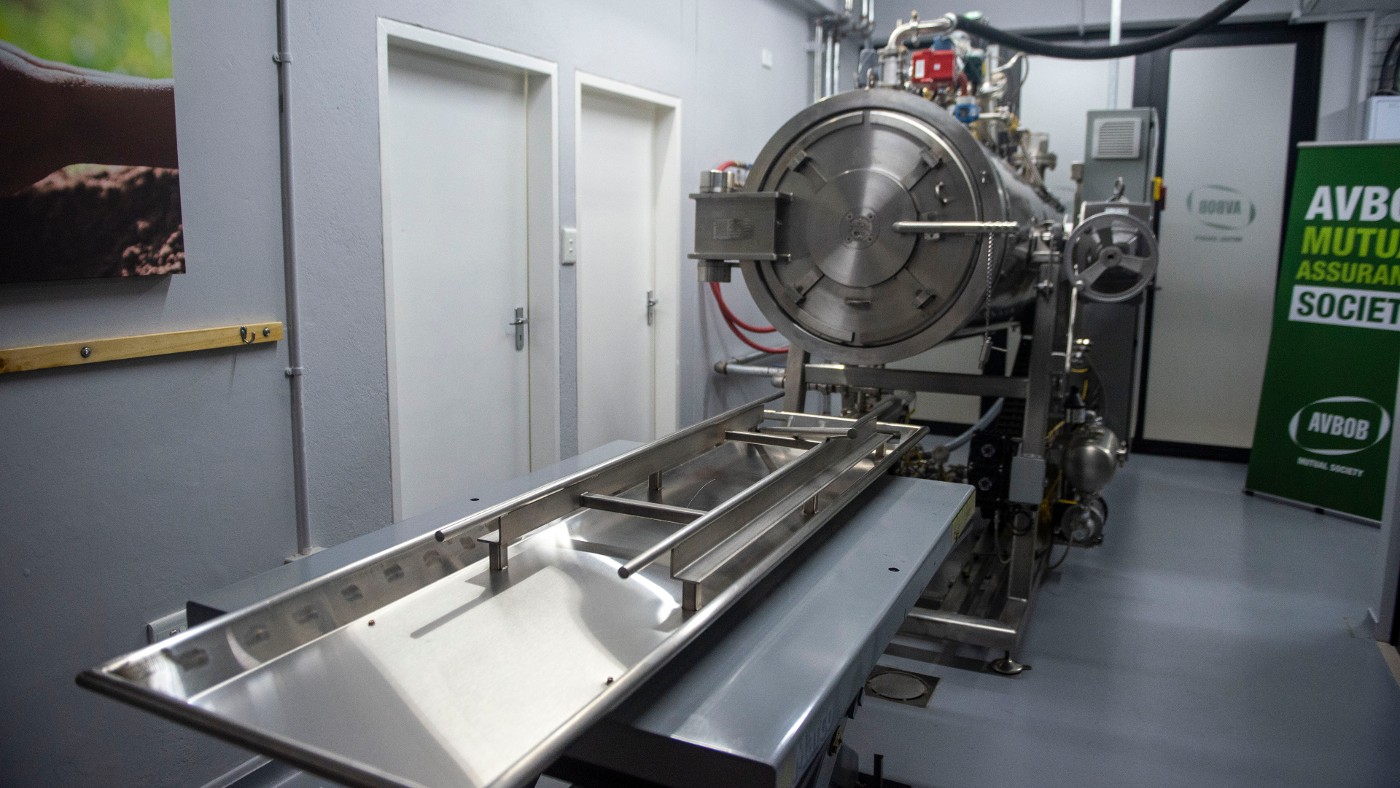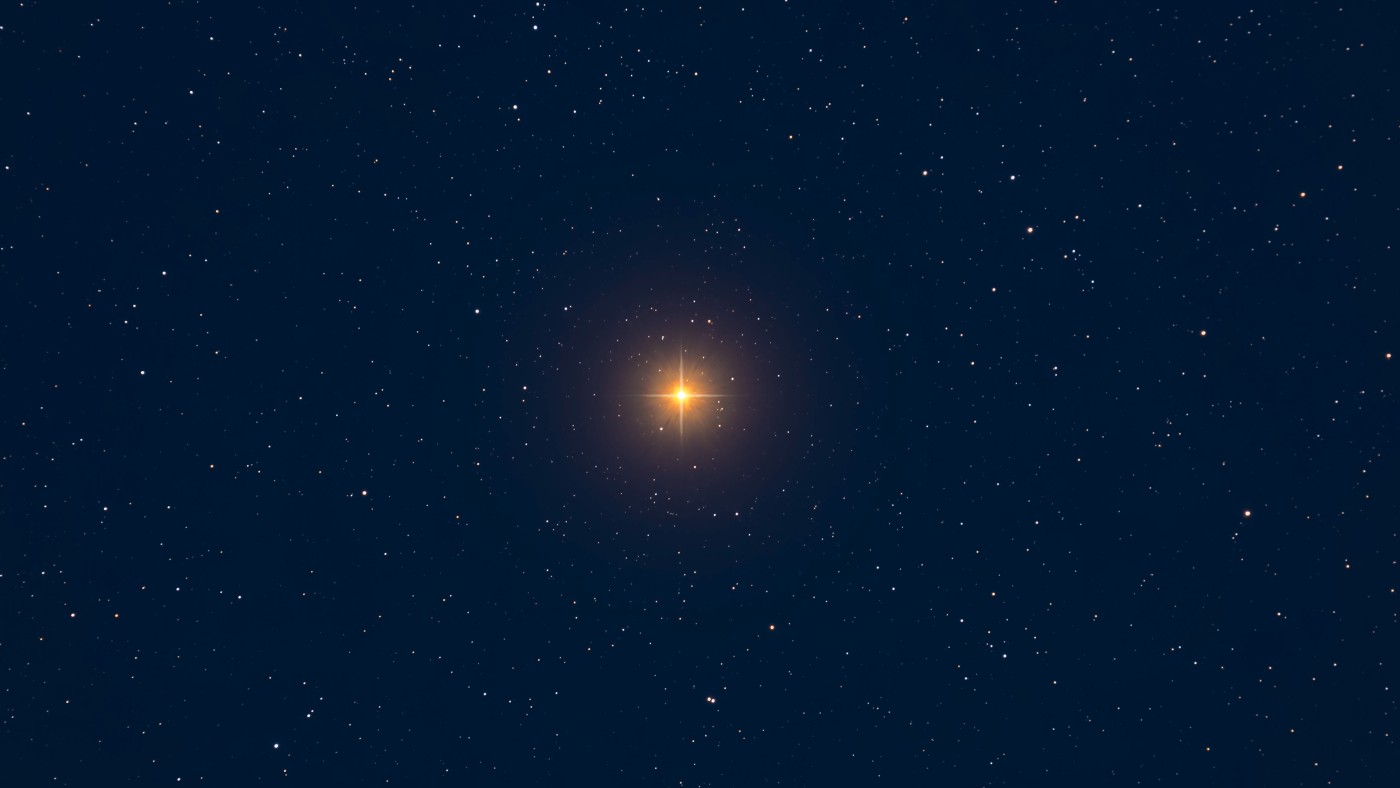‘Boil in a bag’ funeral and other alternatives to burial and cremation
Water cremation will be available in the UK later this year – the first new legal funeral option since 1902

A free daily email with the biggest news stories of the day – and the best features from TheWeek.com
You are now subscribed
Your newsletter sign-up was successful
Water cremation will be available in the UK later this year as a sustainable alternative to traditional burials or cremation.
The process, which involves dissolving a body in a bag in 160C water treated with an alkali, is the first new legal method of disposing of corpses since the Cremation Act of 1902.
It is recommended for anyone “uneasy at the thought of their body being consumed by flames or interred in an insect-teeming grave”, said The Guardian, and has been described as a “boil in the bag” funeral.
The Week
Escape your echo chamber. Get the facts behind the news, plus analysis from multiple perspectives.

Sign up for The Week's Free Newsletters
From our morning news briefing to a weekly Good News Newsletter, get the best of The Week delivered directly to your inbox.
From our morning news briefing to a weekly Good News Newsletter, get the best of The Week delivered directly to your inbox.
It is not the only alternative to traditional funerals.
Human composting
The body-composting process is also known as natural organic reduction or terramation. Corpses are “placed in airtight vessels and surrounded by a bulking mixture of the alfalfa plant and sawdust”, explained Euronews, and the resultant natural heat speeds up decomposition.
Bones and teeth are “ground down separately” and then mixed in with the rest of the soil. One month later, when the new soil has dried and stabilised, it is handed to the family of the deceased person. The process has been legalised in some US states including Washington and New York but is not yet permitted in Europe.
Space scattering
“Not all of us can become astronauts in this life, but your cremains [a person’s cremated remains] can,” said the Los Angeles Times. The Texas-based company Celestis has been launching human remains into space since 1997.
A free daily email with the biggest news stories of the day – and the best features from TheWeek.com
Its $2,995 “Earth rise service” launches flight capsules containing cremated remains to outer space, before they return to Earth. Its “voyager service” sees a portion of a person’s remains board a commercial spacecraft, headed to space for other purposes such as research. In this case, the remains do not return. This costs $12,995.
UK-based Aura Flights, once featured on “Dragons’ Den”, offers “flights to the stratosphere and back to scatter ashes in space”. It boasts that it is “dedicated to providing the best send-off possible”.
Sea burial
“Bury me at sea, where no murdered ghost can haunt me,” sang Shane MacGowan of the Pogues, and this form of burial is certainly becoming more popular. Nautically minded people are increasingly having their ashes scattered into the ocean, or even undergoing a full-body burial.
“While traditionally reserved for members of the Royal Navy, anyone may be buried at sea if the right steps are taken,” said Co-op Funeralcare. “Family members may wish to hold a funeral at the shore or waterfront, or on the ocean itself” as part of the process.
However, a licence must be obtained from the Marine Management Organisation and there are only three locations in England where sea burials are permitted – Newhaven (East Sussex), the Needles (Isle of Wight) and Tynemouth (Tyne and Wear).
Tree burial
“Reducing your carbon footprint beyond your time on Earth could mean planting a tree with your remains,” said the Los Angeles Times. Friends and family can then visit the labelled memorial tree and “enjoy the rest of the conserved forest”.
When a body is buried this way, it is “placed in the foetal position to represent rebirth”, explained Dignity Funeral Directors, while burial ashes are placed in smaller pods, which are then buried into the ground, with a tree planted above them to “create a memorial”.
Donating to science
Then there is the option of donating your body, brain or tissue to a medical school or research establishment. This is a “valuable gift” that is “highly valued by staff and students alike”, said the Royal College of Surgeons of England.
Although you will not have a funeral in the traditional sense, medical schools may hold “committal, memorial or thanksgiving services” before the research begins, said the Human Tissue Authority, which licenses and inspects organisations where bodies are donated for medical research.
However, care should be taken over where a body is donated. A man who donated his mother’s body to what he thought was an Alzheimer’s research centre in Phoenix, Arizona, later learnt it was used to test explosives, said the BBC.
Chas Newkey-Burden has been part of The Week Digital team for more than a decade and a journalist for 25 years, starting out on the irreverent football weekly 90 Minutes, before moving to lifestyle magazines Loaded and Attitude. He was a columnist for The Big Issue and landed a world exclusive with David Beckham that became the weekly magazine’s bestselling issue. He now writes regularly for The Guardian, The Telegraph, The Independent, Metro, FourFourTwo and the i new site. He is also the author of a number of non-fiction books.
-
 Local elections 2026: where are they and who is expected to win?
Local elections 2026: where are they and who is expected to win?The Explainer Labour is braced for heavy losses and U-turn on postponing some council elections hasn’t helped the party’s prospects
-
 6 of the world’s most accessible destinations
6 of the world’s most accessible destinationsThe Week Recommends Experience all of Berlin, Singapore and Sydney
-
 How the FCC’s ‘equal time’ rule works
How the FCC’s ‘equal time’ rule worksIn the Spotlight The law is at the heart of the Colbert-CBS conflict
-
 Betelgeuse: why star is behaving oddly and what would happen if it exploded
Betelgeuse: why star is behaving oddly and what would happen if it explodedfeature Dimming and then brightening has led to speculation about whether its demise in the form of an explosion is imminent
-
 Rapper BoB claims Earth is flat and a conspiracy is hiding the truth
Rapper BoB claims Earth is flat and a conspiracy is hiding the truthSpeed Read US hip-hop star takes to Twitter to defend his views, but gets a lesson in geometry from Neil deGrasse Tyson